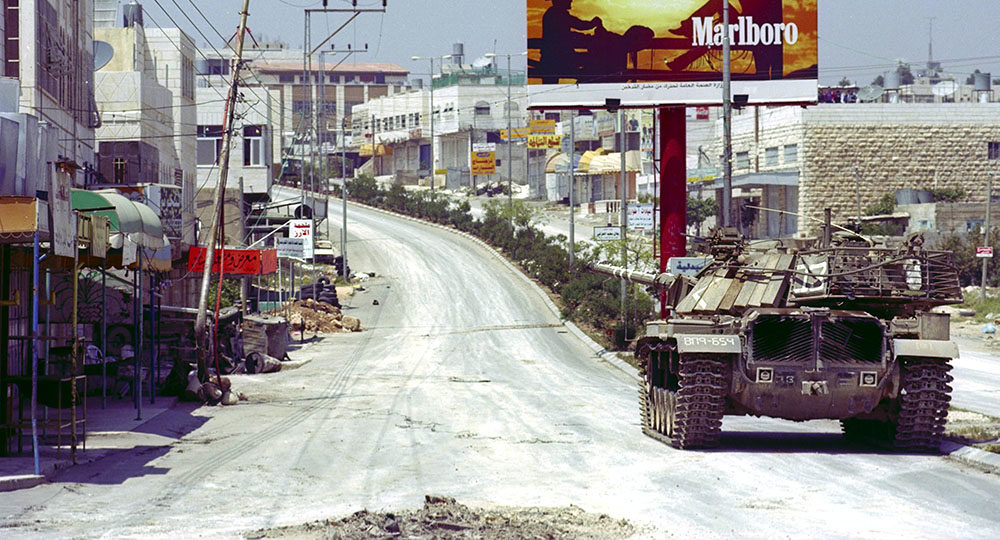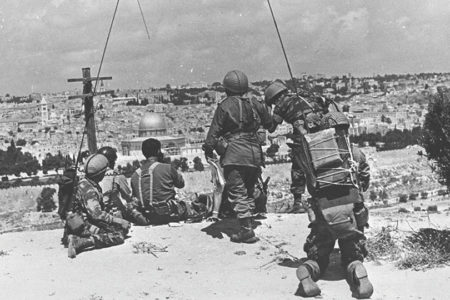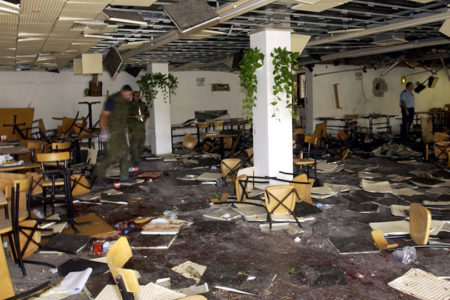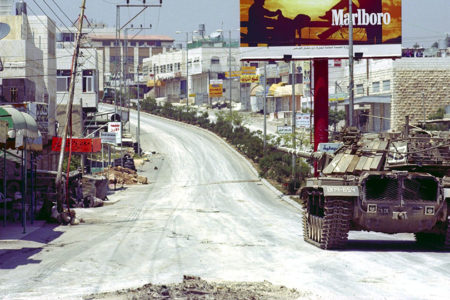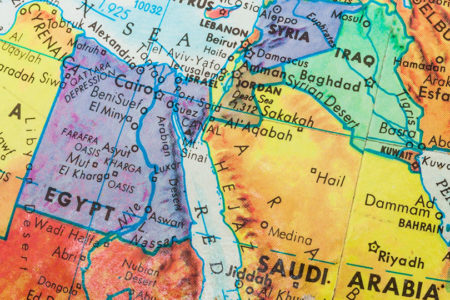The PLO and PA
In January 1964, 13 Arab nations met in Cairo for an Arab League summit and created the
Palestine Liberation Organization (PLO), a political body designed to give a voice to the Palestinian Arabs. At the time, there were no disputed Israeli settlements. Jordan held the West Bank and East Jerusalem; Egypt held the Gaza Strip.
The first PLO congress met in May 1964 in East Jerusalem and drew up the Palestinian National Charter. This Charter was revised in July 1968 and adopted along with a new PLO constitution. The Charter contains 33 articles in which it defines who is a Palestinian, asserts Palestinian-Arab ownership of the entire Holy Land (the PLO insignia is a map of Palestine without Israel), and declares the PLO’s goal: to “liquidate the Zionist presence in Palestine” (Article 15).
It states, “Armed struggle [mentioned nine times] is the only way of liberating Palestine” (Article 9). The methodology is “commando action” (meaning terrorist attacks, Article 10) carried out by its own Palestinian Liberation Army. Thus the PLO has killed thousands of Israelis, primarily civilians, and injured thousands more.
The 1968 Charter contains at least two notable changes. The 1964 version defined Jewish people as Palestinians—those who lived in Palestine until 1947—as long as they were willing to live peacefully and loyally under Arab rule (Article 7). The 1968 version said Jews were Palestinians if they lived in Palestine, not until 1947, but rather “up to the beginning of the Zionist invasion” (Article 6). Some interpret this change to mean that only Jewish people who lived in the region before 1917 (the date Arab literature often uses for the “Zionist invasion”) could claim Palestinian identity. It was 1917 when the British defeated the Muslim Ottoman Turks and gained control of the area.
Also, the first charter claimed no Arab sovereignty over the West Bank or the Gaza Strip (Article 24). The 1968 charter excluded this original article after Israel gained the two territories in the 1967 Six-Day War. The PLO now claims the land.
The PLO serves as an umbrella organization for a number of terrorist factions. By 1968, Yasser Arafat’s Fatah party constituted the majority of the PLO. Arafat was elected PLO chairman the same year and has remained in that position ever since.
In 1988, Arafat announced the PLO’s recognition of Israel and the renunciation of terrorism. In the Oslo Peace process that followed, the PLO committed itself to expunging the charter sections that call for Israel’s destruction. Some assert this action took place at a Palestinian meeting in Gaza on December 14, 1998, with President Bill Clinton in attendance.
However, a multitude of irregularities surrounded the vote, and it is questionable it was legitimate: (1) lack of two-thirds majority vote (not even two-thirds attended); (2) lack of formal vote, only a show of hands; (3) no official count taken; (4) no substitute reading of the charter put forth; (5) meeting was not called specifically for the purpose of amending the charter, as required by Article 33; and (6) the vote merely approved the intention of amending the charter, but no amendments were made. It was sent to committee in 1996 and has been buried there ever since.
New Tactics
Following the Yom Kippur War of 1973, the PLO changed its tactics somewhat. Realizing the implausibility of defeating Israel in a full-scale war, in June 1974 it approved a Phased Plan designed to destroy the State of Israel through incremental advances. Articles 2 and 8 state the PLO’s objective: to “liberate” portions of Palestinian territory, establish a Palestinian National Authority on those portions, then coalesce an alliance with other Arab countries “with the aim of completing the liberation of all Palestinian territory” (i.e., destroying the State of Israel).
Through the Oslo Peace Process, begun in 1993, the PLO has acquired land that it could not acquire through combat. Once acquired, the PLO’s representative role was given to the Palestinian Authority (PA). Arafat and other Palestinian leaders prefer to call the PA the Palestinian National Authority because it implies nation status. It also corresponds with the objective of the 1974 Phased Plan of creating a Palestinian National Authority on a portion of the territory.
Throughout its history, wherever the PLO has gone, it has created national destabilization. This action is intentional. The PLO has sought to undermine whatever national government hosts it, seeking to be a state-within-a-state, if not overthrowing the government outright despite the PLO Charter’s promise, “The Organization shall not interfere in the internal affairs of any Arab country” (Article 27).
In the late 1960s, King Hussein’s Jordanian government was in serious jeopardy of being overrun by the PLO. Hussein attacked the PLO in September 1970, killing thousands. Over the next few months he drove Arafat and the PLO from Jordan.
The PLO next went to Lebanon. It established headquarters in Beirut, dominated the population, and usurped the Lebanese government. Civil war broke out in the mid-70s. Due to the PLO’s continual terrorist attacks and bombardment of northern Galilee, Israel entered Lebanon in 1982, forcing out the majority of PLO members. Arafat then fled to Tunis, Tunisia, where he established the PLO’s base of operations. He remained in Tunis until Israel allowed him into the Gaza Strip in 1994 as a result of the Oslo Accords.
When the PLO moves into an area, it also creates an organized crime system that includes embezzlement, extortion, bribery, monopolies, and murder. This fact has not changed even under the Palestinian Authority. Even with a PA budget of over $1 billion annually (almost $780 million from foreign-donated funds) and another $1 billion in annual, non-budgeted income from monopolies, there is little evidence of infrastructure improvements. Two-thirds of the PA budget, over $700 million, goes to PA salaries, including the salaries of known terrorists. Arafat personally controls the PA’s checkbook. While most Palestinians live in poverty, PA officials enjoy lavish lifestyles and own villas and luxury cars. Although some within the PA have decried the corruption, their voices are quickly silenced.
PA members also extort “protection” money from Palestinian businesses or “request” donations to the Palestinian cause from Christian residents. Since the PA began to administer heavily Christian areas, Christian emigration has skyrocketed. Before PA control, Bethlehem and Nazareth were 80 percent and 60 percent Christian respectively. Now they are 20 percent and 30 percent Christian.
